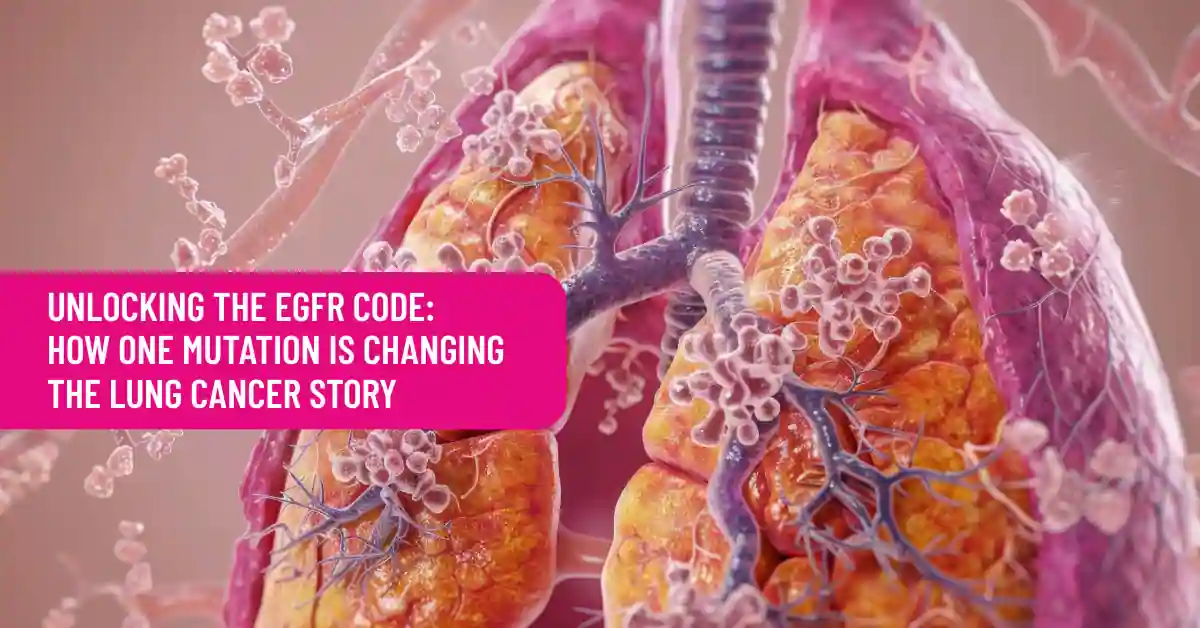Ahead of VIPOS 2025, we Spotlight one of the Most Game-Changing Molecular Targets in Modern Oncology.
What Is EGFR and Why Does It Matter?
Lung cancer has long been one of the most difficult cancers to treat. But in the past two decades, breakthroughs in molecular biology have brought a new dimension to its management, especially in patients with non-small cell lung cancer (NSCLC), the most common type. One of the key players in this revolution is EGFR, or Epidermal Growth Factor Receptor.
EGFR is a protein found on the surface of cells that helps them grow and divide. Sometimes, due to genetic mutations, EGFR becomes overactive, essentially pressing the accelerator on cell division, which can lead to cancer. These mutations are especially common in certain groups of lung cancer patients: non-smokers, women, and individuals of East Asian descent.
Targeting EGFR: From Chemotherapy to Precision Medicine
In the past, lung cancer patients were treated with one-size-fits-all approaches like chemotherapy or radiation. But today, we can test tumors for EGFR mutations and if they’re present, treat the cancer with targeted therapies that are more precise and often more effective.
Drugs called EGFR tyrosine kinase inhibitors (TKIs) block the faulty receptor, halting cancer growth. First- and second-generation TKIs like gefitinib and erlotinib improved outcomes, but resistance often developed. Enter third-generation drugs like osimertinib, which not only work against the original mutations but also target resistance mutations like T790M.
Real Impact, Real People
For many patients, EGFR testing and targeted treatment can mean longer survival with fewer side effects. People once facing months of life expectancy are now living years with good quality of life, all because their cancer was found to carry an EGFR mutation and could be treated accordingly.
But this is not just a story about drugs but about early and equitable access to genetic testing, which remains a challenge in many parts of the world. As molecular diagnostics become more affordable and accessible, EGFR testing is being incorporated into standard diagnostic workups, enabling more patients to benefit.
What’s New: EGFR in 2025 and Beyond
At VIPOS 2025, leading oncologists, researchers, and precision medicine experts will dive into the expanding role of EGFR in lung cancer, including:
* Novel EGFR mutations and how we’re identifying and targeting them.
* Combination therapies that improve durability of response.
* The promise of liquid biopsies to detect mutations in blood rather than tissue.
* Resistance mechanisms and strategies to overcome them.
From bench to bedside, the EGFR story is a prime example of how precision oncology is reshaping cancer care.
In Conclusion
EGFR mutation status is no longer just a lab detail but a cornerstone of lung cancer treatment planning. As research continues to evolve and treatment options become more refined, the future looks promising for patients whose cancers carry this important molecular signature.
Join us at VIPOS 2025 as we explore these cutting-edge advancements and chart the future of lung cancer care in the age of precision oncology.
Because when it comes to lung cancer, understanding one mutation can make all the difference.


